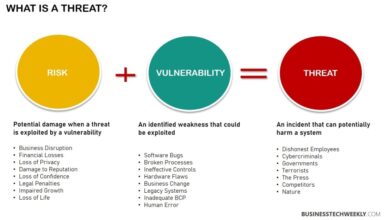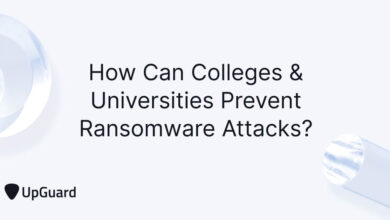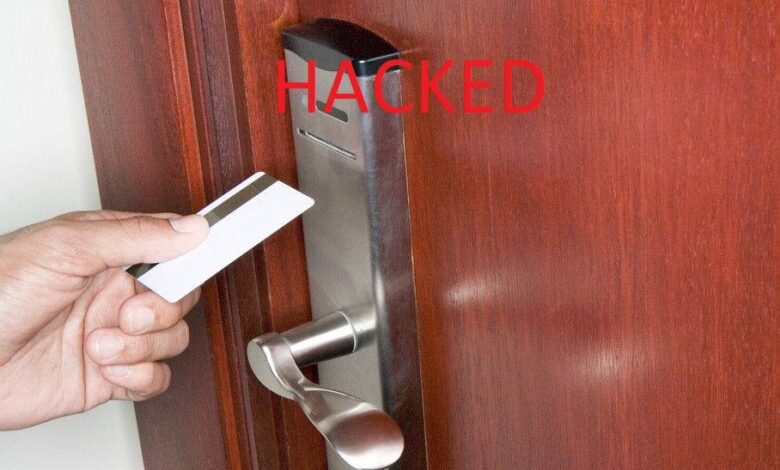
Hackers Lock Hotel Rooms Ransomware Chaos
Hackers use ransomware to lock hotel rooms filled with guests, creating chaos for both visitors and the hotel itself. This malicious tactic involves encrypting hotel systems, effectively trapping guests and disrupting crucial services. The criminals demand a ransom in exchange for restoring access, causing significant financial and operational issues. This article delves into the strategies employed, the impact on guests and staff, and the measures to mitigate future attacks.
The attack not only affects the hotel’s bottom line but also creates a potentially dangerous situation for the guests. The encryption of systems can hinder critical functions like access control, emergency communication, and even basic services like lighting and heating. This can compromise guest safety and the smooth running of the hotel operation. The psychological impact on both guests and staff is undeniable, creating an atmosphere of fear and uncertainty.
Ransomware Tactics and Techniques
Hotel ransomware attacks are a growing threat, exploiting vulnerabilities in hospitality systems to disrupt operations and extort money. These attacks often involve sophisticated tactics, targeting not only the hotel’s financial data but also guest access systems, causing significant operational and reputational damage. Understanding these techniques is crucial for hotels to implement robust security measures and protect themselves from future attacks.Ransomware attacks on hotels are evolving, shifting from simple data encryption to more complex strategies that include disrupting guest services.
The attacks often combine multiple methods to maximize disruption and leverage the psychological impact on guests, leading to significant financial losses for the hotels.
Ransomware Types Targeting Hotels
Hotels face various ransomware types, each with its own approach to encrypting data and disrupting operations. Some prevalent types include Ryuk, Maze, and LockBit, known for their destructive potential. These ransomware families often employ sophisticated encryption algorithms and techniques, making recovery challenging. These types frequently target critical hotel systems, including point-of-sale (POS) systems, property management systems (PMS), and guest access systems.
Methods of Initial Access
Hackers employ several methods to gain initial access to hotel systems, exploiting weaknesses in network security. Common techniques include phishing emails, exploiting vulnerable software, and exploiting vulnerabilities in cloud services connected to the hotel’s infrastructure. These methods often target employees with social engineering tactics, leading to unauthorized access to internal networks.
Exploited Vulnerabilities in Hotel Infrastructure
Hotels often have interconnected systems that can be exploited. These include vulnerabilities in outdated software, weak passwords, and inadequate security protocols. Remote access vulnerabilities in property management systems (PMS) and point-of-sale (POS) systems are particularly prevalent, allowing attackers to gain initial access. Lack of multi-factor authentication and inadequate network segmentation also contribute to successful attacks.
Ransomware Encryption of Hotel Data and Systems
Ransomware encrypts hotel data and systems using various methods. These methods include symmetric and asymmetric encryption algorithms, targeting files, databases, and even entire systems. The encryption process often targets critical data, including guest information, financial records, and operational logs. The encryption can be targeted at specific systems, such as guest access or point-of-sale systems. Examples include encrypting files on the hotel’s servers, databases, and even guest room access systems.
Locking Hotel Rooms and Preventing Guest Access
Hackers often use sophisticated methods to lock hotel rooms, preventing guest access. This typically involves manipulating hotel management systems, such as the property management system (PMS), to disrupt the functionality of room key systems or lock control systems. They might gain access to and control hotel systems remotely, disabling access controls for specific rooms. The disruption can be achieved by exploiting vulnerabilities in the PMS or other systems used to manage room access.
Comparison of Technical Strategies for Targeting Guest Access
Different technical strategies are used to target hotel guest access. Some strategies focus on compromising the hotel’s PMS (Property Management System) to control room access, while others target the physical locks and key card systems directly. These strategies can range from simple denial-of-service attacks to more complex exploits that allow attackers to gain complete control of the hotel’s systems.
Table of Ransomware Strains Used Against Hotels
| Ransomware Strain | Encryption Method | Target Systems |
|---|---|---|
| Ryuk | Advanced encryption algorithms | Critical systems, databases, servers |
| Maze | Data exfiltration and encryption | Financial records, guest data, operational systems |
| LockBit | Data encryption and extortion | Hotel management systems, guest access systems, POS systems |
Impact on Guests and Hotel Operations
Ransomware attacks targeting hotels are rapidly escalating, causing significant disruptions to guest experiences and hotel operations. These attacks often involve encrypting critical systems, effectively locking down hotel facilities and impacting various aspects of guest services. The consequences extend beyond immediate operational issues, impacting guest safety, financial stability, and even the psychological well-being of both guests and staff.
Immediate Impact on Guest Experiences
The immediate effect of a ransomware attack on guests is profound and often distressing. Guests may find themselves unable to check in or out, as key systems controlling access and reservations are compromised. Essential services, such as room access, Wi-Fi, and even basic utilities, may be unavailable. This can lead to significant inconvenience and frustration, particularly for guests with pre-booked arrangements or those traveling with young children or elderly family members.
Furthermore, the inability to contact hotel staff effectively can compound the sense of isolation and anxiety. For instance, a guest who needs medical assistance may be unable to reach the hotel’s medical staff, or a guest with a pre-booked tour may find that it’s been cancelled.
Disruption to Hotel Services and Amenities
Ransomware attacks severely disrupt hotel operations. Essential systems like point-of-sale (POS) systems, reservation management systems, and even building management systems may be rendered inoperable. This leads to delays in check-in/check-out procedures, difficulty in handling guest requests, and problems with food and beverage service. For example, restaurants may experience delays in order processing or the inability to accept payments, impacting the dining experience significantly.
Furthermore, maintaining room cleanliness and amenities may be compromised, creating an unpleasant and unsanitary environment for guests.
Potential Financial Losses for Hotels
The financial impact of ransomware attacks on hotels can be substantial. Besides the immediate costs of dealing with the attack and restoring operations, there are significant potential liabilities and fines associated with data breaches. Hotels might lose revenue from cancelled bookings, refunds, and the disruption of normal operations. Compensation claims from dissatisfied guests and legal fees add to the financial burden.
The cost of restoring systems, including the cost of new software and hardware, and the salaries of IT experts involved in the recovery process, can be substantial. For example, a major hotel chain might face millions of dollars in losses due to a large-scale ransomware attack.
Safety and Security Concerns for Guests
During a ransomware attack, safety and security concerns for guests are paramount. Compromised access systems can create vulnerabilities, potentially jeopardizing the safety and security of the hotel’s guests. Lack of communication and limited staff availability can also pose significant challenges in ensuring the safety of guests. The absence of essential security systems, like fire alarms or security cameras, can increase risks.
For instance, a fire in the hotel could go undetected if the alarm system is offline.
Psychological Impact on Guests and Hotel Staff
The psychological impact of a ransomware attack on guests and hotel staff is considerable. Guests may experience anxiety, frustration, and feelings of helplessness, particularly if they are stranded or unable to contact loved ones. Hotel staff may experience stress, anxiety, and a sense of responsibility for the situation. The disruption to their work routines and the uncertainty surrounding the recovery process can be detrimental to their mental well-being.
The lack of control and the inability to perform their duties effectively can lead to high levels of stress and anxiety.
Measures for Restoring Hotel Operations
Restoring hotel operations after a ransomware attack requires a multi-faceted approach. This includes isolating the infected systems, restoring data from backups (if available), and implementing robust security measures to prevent future attacks. A crucial step involves hiring cybersecurity experts to investigate the breach and develop strategies to prevent future attacks. It is essential to communicate transparently with guests, providing updates on the recovery process.
Hackers locking hotel rooms full of unsuspecting guests with ransomware is a serious issue. This kind of attack highlights the critical need for better security measures, like the ones discussed in Deploying AI Code Safety Goggles Needed. Implementing AI-powered tools to proactively identify and fix vulnerabilities in code before they’re exploited by malicious actors is key to preventing such incidents from happening in the first place.
Ultimately, we need more robust security solutions to protect everyone from these kinds of digital threats.
A well-planned communication strategy can mitigate guest anxiety and ensure smooth recovery.
Immediate and Long-Term Consequences
| Consequences | Guests | Hotel |
|---|---|---|
| Immediate | Disrupted check-in/check-out, loss of amenities, inconvenience, anxiety, potential safety concerns | Operational disruptions, revenue loss, guest dissatisfaction, reputational damage, increased security costs |
| Long-term | Negative perception of the hotel, difficulty in booking future stays, potential long-term health issues from stress, legal ramifications | Financial losses, legal battles, difficulty in attracting investment, increased insurance premiums, potential permanent reputational damage |
Security Implications and Prevention Strategies: Hackers Use Ransomware To Lock Hotel Rooms Filled With Guests
Ransomware attacks targeting hotels are a growing concern, highlighting vulnerabilities in the interconnected systems of modern hospitality. These attacks can cripple operations, damage reputations, and cause significant financial losses. Understanding the weaknesses in these systems and implementing proactive security measures are crucial to protecting both the hotel and its guests.Effective cybersecurity strategies are paramount for mitigating risks and ensuring business continuity.
A robust approach encompasses various layers of defense, from network security to employee training. Preventing ransomware attacks requires a multifaceted approach that addresses both technical and human factors.
Security Weaknesses in Hotel Systems
Hotel systems often exhibit vulnerabilities due to outdated software, weak passwords, and inadequate security protocols. Legacy systems, which are common in many hotels, may lack modern security features. Lack of consistent patching and updates leaves systems exposed to known exploits. Poorly configured firewalls and inadequate intrusion detection systems can allow attackers to gain unauthorized access. Remote access points and guest Wi-Fi networks are frequently insecure, creating entry points for malicious actors.
The interconnected nature of hotel systems, including point-of-sale (POS) systems, property management systems (PMS), and other applications, makes it easier for attackers to spread malware throughout the network.
Crucial Security Measures for Hotels
Implementing a multi-layered security strategy is vital to prevent future attacks. Regular software updates and patches are essential to close known vulnerabilities. Strong password policies and multi-factor authentication (MFA) should be enforced for all users. Employing a robust firewall and intrusion detection system to monitor network traffic for suspicious activity is crucial. Segmenting the network to isolate critical systems from less secure areas can limit the impact of a breach.
Securing remote access points and guest Wi-Fi networks with strong encryption is necessary. Regular vulnerability assessments and penetration testing can identify potential weaknesses and help improve security posture. Enforcing data loss prevention (DLP) policies to prevent sensitive data from leaving the network is also a key measure.
Robust Cybersecurity Protocols
Implementing robust cybersecurity protocols is essential for minimizing risks. This involves implementing a comprehensive security information and event management (SIEM) system to monitor network activity and detect potential threats. Utilizing advanced threat intelligence feeds to stay ahead of emerging threats is a best practice. Creating and regularly testing disaster recovery and business continuity plans (BCPs) are crucial for mitigating downtime and restoring operations in the event of an attack.
Implementing security awareness training programs to educate employees on phishing and social engineering tactics is vital.
Importance of Employee Training
Employee training plays a significant role in preventing phishing and social engineering attacks. Educating employees on identifying suspicious emails, links, and attachments is crucial. Regular training sessions should cover the latest phishing techniques and social engineering tactics. Establishing clear reporting procedures for suspected security incidents is important. Training employees on the importance of strong passwords and safe practices for handling sensitive data is crucial to maintain security awareness and minimize risks.
Comparison of Security Protocols
| Security Protocol | Effectiveness against Ransomware | Description |
|---|---|---|
| Firewall | High | A firewall monitors network traffic and blocks unauthorized access. |
| Intrusion Detection System (IDS) | High | IDS detects malicious activity on the network and alerts administrators. |
| Multi-Factor Authentication (MFA) | High | MFA adds an extra layer of security by requiring multiple verification methods. |
| Endpoint Detection and Response (EDR) | Medium to High | EDR monitors and responds to threats on individual devices. |
| Security Information and Event Management (SIEM) | High | SIEM collects and analyzes security logs from various sources. |
Steps to Take When a Ransomware Attack Occurs
Immediately disconnect the affected systems from the network to prevent the spread of ransomware. Isolate the infected systems to prevent further damage. Engage with law enforcement and cybersecurity experts to understand the scope of the incident. Report the incident to relevant regulatory bodies and insurance companies. Assess the damage and prioritize recovery efforts.
Restore data from backups, if available. Avoid paying the ransom, as this does not guarantee data recovery and often encourages further attacks.
Importance of a Disaster Recovery Plan
A disaster recovery plan (DRP) is crucial for minimizing downtime and restoring operations after a ransomware attack. The plan should Artikel the steps to take to restore systems and data from backups. It should also detail procedures for communication and coordination among staff and stakeholders. Regular testing and updating of the DRP are critical to ensure its effectiveness.
The plan should include procedures for data recovery, system restoration, and business resumption.
Legal and Ethical Considerations
Ransomware attacks targeting hotels, particularly those impacting guest data and operations, raise complex legal and ethical issues. Hotels must navigate potential liabilities, ethical responsibilities, and varying legal frameworks across jurisdictions. Understanding these considerations is crucial for minimizing risks and ensuring a swift, responsible response to such incidents.Hotels face significant challenges in balancing the need to protect guest data and business operations with the rights and expectations of affected individuals.
Ever imagined hackers locking hotel rooms full of unsuspecting guests with ransomware? It’s a terrifying scenario, and unfortunately, it’s a real threat. Similar vulnerabilities exist in online systems, like the recent concerns around Azure Cosmos DB, which, if exploited, could potentially have wide-ranging consequences, as detailed in Azure Cosmos DB Vulnerability Details. This underscores the need for robust security measures in all digital spaces, from hotel room locks to critical database systems, to prevent similar scenarios from impacting us all.
These considerations extend beyond the immediate impact of the attack to encompass long-term reputational damage and potential financial repercussions.
Legal Liabilities of Hotels
Hotels have a legal responsibility to protect guest data and maintain a safe environment. Failure to do so can lead to significant financial penalties and reputational damage. This responsibility often arises from data protection laws, contractual obligations, and tort law principles. Breaches of these responsibilities can result in lawsuits from affected guests, regulatory fines, and substantial legal fees.
For instance, if a hotel’s inadequate security measures lead to a ransomware attack that exposes guest payment information, they could face lawsuits for negligence and breach of contract.
Ethical Responsibilities of Hotel Staff
Hotel staff play a critical role in maintaining ethical conduct during a ransomware attack. Transparency, communication, and adherence to established protocols are essential. Ethical considerations include informing guests about the incident, providing support, and maintaining data privacy. Failure to address these ethical concerns can erode guest trust and damage the hotel’s reputation. For example, if staff fail to notify guests about a data breach impacting their personal information, this could lead to significant ethical breaches.
Legal and Ethical Implications of Data Breaches on Guests
Data breaches can have severe legal and ethical implications for guests. Guests may experience financial losses, identity theft, and emotional distress due to compromised personal information. The legal framework for data breaches often includes provisions for notification requirements, compensation for damages, and potential criminal charges for malicious actors. Depending on the jurisdiction and the severity of the breach, guests may have the right to seek legal recourse.
It’s terrifying to imagine hackers using ransomware to lock hotel rooms full of unsuspecting guests. Thankfully, there are legal protections in place, like the Department of Justice’s recent “Safe Harbor” policy for Massachusetts transactions, Department of Justice Offers Safe Harbor for MA Transactions. This could potentially offer a crucial safeguard for businesses in similar situations, helping to ensure that victims of these types of cyberattacks are better protected.
Hopefully, this will help to reduce the impact of such criminal acts on hotels and their patrons in the future.
For instance, if a guest’s credit card information is compromised due to a ransomware attack, they may be entitled to financial compensation and potentially legal action against the hotel.
Comparison of Legal Frameworks in Different Jurisdictions
Ransomware attacks trigger different legal responses depending on the jurisdiction. Varying laws and regulations govern data protection, security requirements, and incident reporting. Differences exist in notification requirements, the scope of liability, and the availability of legal remedies. For instance, the General Data Protection Regulation (GDPR) in Europe mandates specific requirements for data breaches, differing significantly from data protection laws in other regions.
Summary of Legal Requirements for Handling Data Breaches
| Country | Data Breach Notification Requirements | Penalties for Non-Compliance ||—|—|—|| United States | Varies by state; often requires notification of affected individuals | Significant fines and legal repercussions || European Union (GDPR) | Strict notification requirements; often includes compensation for affected individuals | Substantial fines, potentially criminal charges || UK | Varies depending on the type of data breached; often includes notification requirements | Fines and legal action || Canada | Specific requirements depending on the type of data; often includes notification and compensation | Fines and potential legal action |This table provides a simplified overview.
Consult with legal professionals for specific requirements in individual jurisdictions.
Potential for Legal Action by Guests or Other Stakeholders
Guests or other stakeholders, including regulatory bodies and insurance companies, may pursue legal action against hotels for negligence, breach of contract, or violation of data protection laws. The potential for lawsuits arises from the hotel’s alleged failure to implement adequate security measures, respond effectively to the incident, or adequately compensate affected parties. This could include class-action lawsuits, demanding compensation for damages, and potentially holding the hotel liable for the actions of third-party hackers.
For example, a class action lawsuit might be filed against a hotel chain if numerous guests experienced financial losses or identity theft due to a widespread ransomware attack.
Future Trends and Predictions
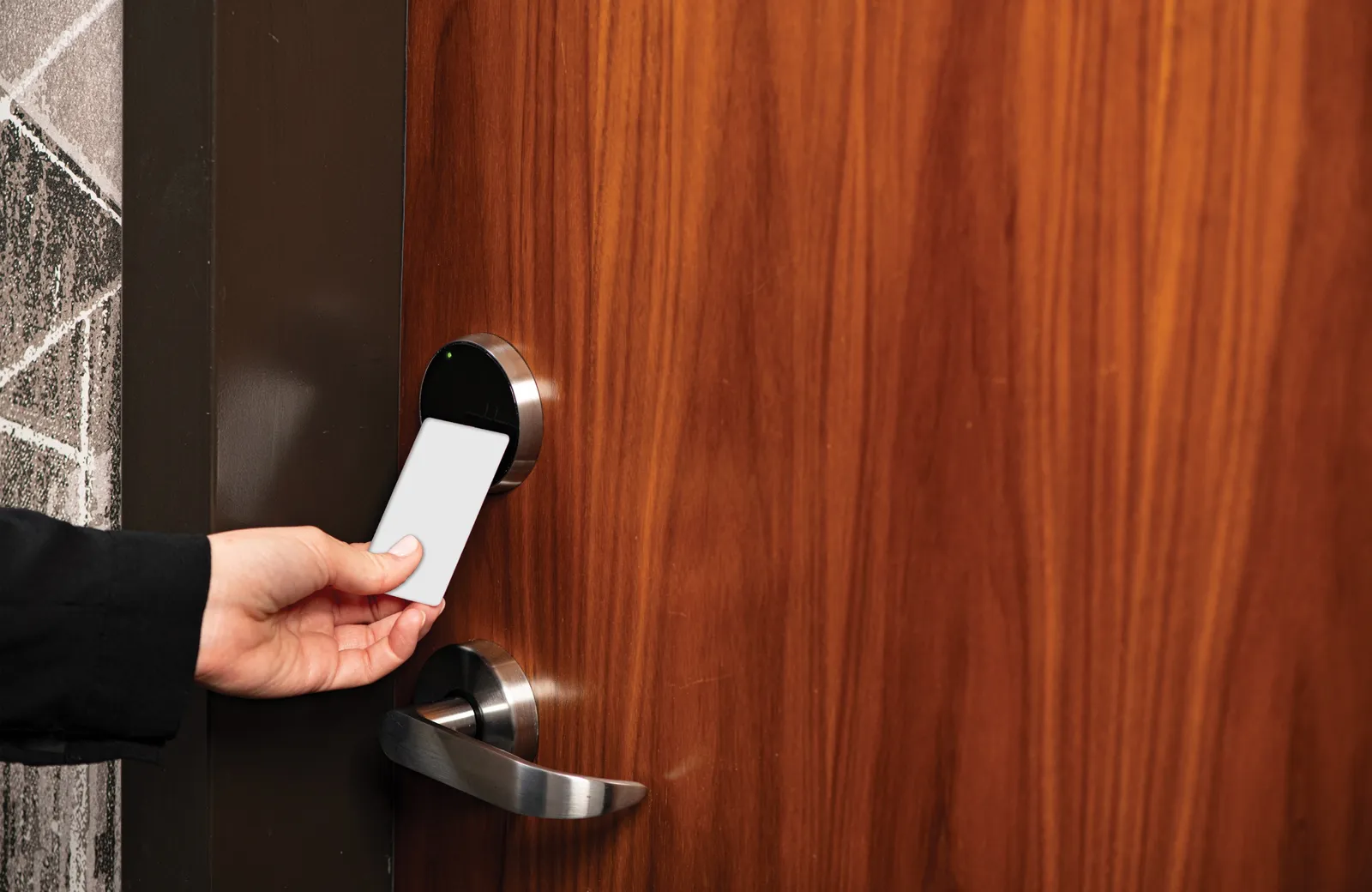
The landscape of cybersecurity is constantly evolving, and hotels are increasingly becoming attractive targets for ransomware attacks. Understanding future trends is crucial for proactive defense strategies. Hotels need to anticipate emerging tactics and adapt their security posture accordingly.Predicting the future of ransomware targeting hotels involves examining current trends and extrapolating potential adaptations. The sophistication of attacks is steadily rising, and hotels must remain vigilant to stay ahead of the curve.
The rise of AI-powered tools and techniques will likely amplify the threats.
Emerging Ransomware Trends
The evolution of ransomware attacks is characterized by increased sophistication and targeted approaches. Hotels are not immune to these advancements. Future attacks might focus on exploiting vulnerabilities in interconnected systems, like point-of-sale (POS) systems or guest room management systems. Ransomware-as-a-service (RaaS) models will likely become more prevalent, making it easier for less-skilled actors to launch attacks. Furthermore, attacks may target the hotel’s supply chain, impacting multiple properties simultaneously.
Adaptations in Hacker Strategies
Hackers are constantly adapting their strategies to evade detection and maximize impact. Future adaptations may include using more targeted phishing campaigns, exploiting zero-day vulnerabilities, and employing advanced evasion techniques to bypass security measures. The use of AI and machine learning could enable attackers to identify and exploit previously unknown weaknesses in hotel systems. Another adaptation might involve the use of insider threats, where compromised employees provide access to critical systems.
Emerging Technologies for Hotel Security, Hackers use ransomware to lock hotel rooms filled with guests
Advancements in technology offer potential solutions for bolstering hotel security. These include the implementation of robust intrusion detection and prevention systems (IDPS), leveraging artificial intelligence (AI) for anomaly detection, and utilizing blockchain technology to enhance data security and transparency. The adoption of advanced threat intelligence platforms can provide real-time insights into emerging threats and vulnerabilities, allowing for proactive measures.
Furthermore, multi-factor authentication (MFA) and robust access control systems are essential.
Security Threats and Measures in the Future
Future security threats to hotels will likely be more complex and multifaceted. The combination of ransomware, supply chain attacks, and insider threats will require a layered security approach. Hotels must invest in robust security measures such as data encryption, firewalls, and intrusion detection systems. The integration of advanced threat intelligence platforms will be vital to stay ahead of emerging threats.
Latest Advancements in Cybersecurity Solutions
The cybersecurity industry is constantly innovating, providing new solutions for hotels. Advanced endpoint detection and response (EDR) solutions offer real-time monitoring and analysis of suspicious activity on guest devices and hotel systems. Cloud-based security solutions can provide scalability and flexibility to adapt to evolving threats. Furthermore, security information and event management (SIEM) systems will be critical for collecting, analyzing, and responding to security events.
Continuous Security Updates and Upgrades
Maintaining a robust security posture requires continuous vigilance and adaptation. Hotels must implement regular security updates and upgrades to address emerging vulnerabilities. Patching systems promptly and regularly is crucial to mitigate known weaknesses. Security awareness training for employees is vital to prevent human error-based vulnerabilities. Proactive security audits and penetration testing can help identify potential vulnerabilities and weaknesses.
Keeping Abreast of New Vulnerabilities
Staying informed about newly discovered vulnerabilities is essential for proactive defense. Subscribing to security advisories, following industry experts, and participating in security forums can help hotels stay updated on the latest threats. This knowledge allows for timely implementation of security measures to mitigate potential risks.
Closing Summary
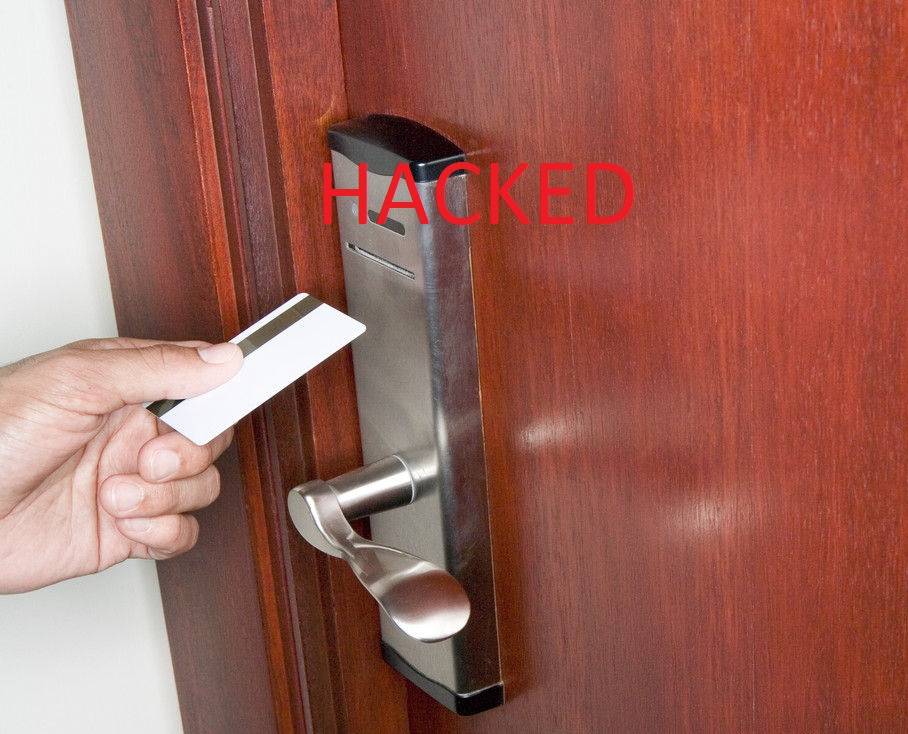
In conclusion, the increasing sophistication of ransomware attacks against hotels highlights the critical need for robust cybersecurity measures. Hotels must prioritize proactive security measures, employee training, and disaster recovery planning to safeguard their operations and guest safety. Understanding the evolving tactics and adapting to emerging trends are crucial for preventing future attacks and ensuring a safe and secure environment for everyone.
The potential for legal and ethical ramifications further underscores the importance of preparedness.
Essential Questionnaire
What are the different types of ransomware used against hotels?
Various ransomware types target hotels, each with unique encryption methods and targeting different systems. Some commonly used types include those focusing on guest access systems, point-of-sale systems, or central reservation systems. Understanding the specific types used in an attack is crucial for developing targeted countermeasures.
What are the potential legal ramifications for hotels during a ransomware attack?
Hotels face legal liabilities in response to ransomware attacks, particularly concerning data breaches and guest safety. Laws regarding data privacy and security vary by jurisdiction, and hotels must comply with local regulations to avoid legal repercussions. Understanding these regulations and implementing appropriate procedures is essential for minimizing legal risks.
How can hotels prevent ransomware attacks?
Implementing robust cybersecurity protocols, such as multi-factor authentication, firewalls, and intrusion detection systems, can significantly reduce the risk of ransomware attacks. Employee training on phishing and social engineering is also crucial. Regular security updates and patching are critical to addressing emerging vulnerabilities. Proactive measures are key to preventing future attacks.
What is the psychological impact of a ransomware attack on guests?
Ransomware attacks can cause significant psychological distress for guests, from fear and anxiety to feelings of helplessness and violation. The disruption to services, potential safety concerns, and the disruption to their plans can create lasting negative impressions. Understanding and addressing these concerns is vital for rebuilding guest trust and satisfaction.


